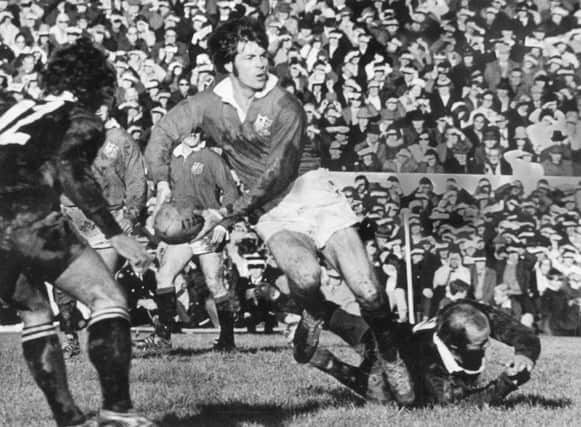Allan Massie: Smith and James the key to Lions' 1971 success


It’s not only for those of us well steeped in nostalgia, but of a wider and more immediate interest. Younger readers may be amazed – either horrified or impressed – to learn of the violence, skullduggery and even viciousness of the game in the dear old amateur days, when referees had no TMO and big-screen replays to provide evidence of assault and battery. The modern game may be power-driven, but, compared to the hardmen of amateur rugby, today’s most fearsome forwards are like tabby cats lazing in front of a log fire.
Moreover, in view of our very proper concern about concussion now, it’s astonishing to be reminded how casually this was treated then. No exit for a head injury assessment; just get on with the game. “I was concussed,” Fergus Slattery says, “after eight or nine minutes and remained pretty well out of it until about ten minutes into the second half… I only realised where I was in the final quarter of the game.” The punch which decked him “had cracked a bunch of teeth down to the root”, but eventually “the concussion kind of started to drift away”.
Advertisement
Hide AdAdvertisement
Hide AdWarren Gatland will have a squad of assistants and analysts, even if not the Cabinet-sized one that Clive Woodward took to New Zealand 12 years ago. In 1971 there was Carwyn James and the manager, Aberdonian Dr Doug Smith. He had toured New Zealand as a powerful wing in 1950, but – oh these amateur selection committees! – played only one match subsequently for Scotland in 1953 against Ireland. (We lost, heavily.)
No Lions team has had a better manager than Dr D W C Smith (Aberdeen University, Aberdeen Grammar School FPs and London Scottish). Arriving in NZ he said the Lions would win the series 2-1, with one Test drawn. They did. There was, he said, a weak link in the All Blacks XV. When that sublime genius Barry John ran All Black full-back Fergie McCormick so ragged in the first Test that he was dropped from the second, Smith replying to a question said, “no, the weak link’s still there”. Only when about to fly home did he say he had never actually seen a flaw or weak link in the All Blacks side. But he had got them thinking.
Dr Smith and Carwyn James were very different characters, but the relationship they formed was the Lions’ bedrock. Carwyn had been a brilliant fly-half for Llanelli, Barry John’s boyhood hero. “He teased opponents, almost daring them to tackle him, persuading them to go one way when he had made up his mind to go the other.” Yet he played only twice for Wales, principally because his rival for the No 10 jersey was Cliff Morgan, the star of the 1955 Lions in South Africa – a team that competes in memory with the 1971 one as the greatest of all Lions. Morgan played 22 times for Wales, but in Llanelli everyone thought the selectors got it wrong.
Carwyn was a complicated man, a Welsh Nationalist (Plaid Cymru parliamentary candidate), Welsh-speaking too of course; a chain smoker and gin drinker, a gay man who was necessarily closeted, afflicted with eczema, gentle in speech, clear-minded, a lover of poetry who believed that rugby should be played in poetic style. When he started to coach Llanelli, Barry John remembered that it was “like a breath of fresh air. He’d prowl around the changing-room before kick-off and would always encourage us to play it as we saw it. ‘Take a few risks, make a few mistakes. As long as you’re adventurers, I won’t mind. Think, think, think – it’s a thinking man’s game’.” He took that philosophy to the Lions. If Carwyn could miraculously have been in charge of this summer’s tour, it’s as sure as eggs are eggs that Finn Russell would have been on the plane to New Zealand.
Of course he was lucky. Even the best coaches need luck, and he was fortunate to have Gareth Edwards, Barry John and Mike Gibson as his 9, 10 and 12. There’s never been a better midfield trio and a lot of players today could still learn from them. More of that in next week’s column. This one can end with a remark of Gibson’s. When Gareth went off with a hamstring injury in the first Test to be replaced by Chico Hopkins (who had a very fine game as it happens) Gibson said it didn’t matter: Barry “could have played well with Harry Secombe at scrum-half”. And if you don’t know who Harry Secombe was, ask your father or grandfather.